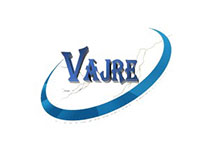Trusted By :


















An overview- ISO certification online in India
Different types of ISO registration In India
There are many types of ISO certifications listed below, entrepreneurs need to choose ISO standards required for their business activity.
Documents required for ISO registration in India
Following are the Documents Required for ISO Registration:-
Benefits of ISO certification of a company
There are number of benefits to the ISO certification. Here is the list of some general benefits of ISO registration.
Credibility
ISO certification contributes to consumer satisfaction. It assures customers that the product or service they are purchasing is of high quality and has undergone a thorough quality check. This will aid in the development of client confidence and trust in that particular product or service, hence increasing the brand value of the company
International Market
To access worldwide markets or to capture an international market, a company's ISO certification is required.
Tender Documentation
It qualifies an organisation to submit government tenders, and it is also a legal or contractual need in several industries.
Quality products
The most important component is Quality Management, which aids in the improvement of a company's credibility and image in the marketplace.
Marketability
The accreditation leads to increased business opportunities, which leads to day-to-day business improvement.
A detailed process of ISO registration In India
Startup Club India experts will help you at every step of the registration process. Here is the detailed process of ISO registration in India-
1. An application for ISO Certification must be submitted, along with information about the firm, such as the registered address, nature of the business, and number of years in operation.
2. The central ISO company verifies the documents and performs an audit to determine whether or not the company is qualified for certification.
3. Your organisation receives an ISO accreditation from the appropriate ISO body, and an annual audit is undertaken to ensure that your quality management systems are up to date.
FAQs on ISO certification in India
 Reviews
Reviews


Ajay Kumar
7 months ago


Babusona Pandit
11 months ago


Ishika Thathera
a year ago


Dr. Nitin Jha
10 months ago


Neena Singh
11 months ago


Mridulla Bhardwaj
11 months ago


Prince Siddhartha Politically Private
11 months ago


manjeet singh
11 months ago


Navin Kumar
11 months ago


Mrityunjay Singh Hacker
a year ago


kasulla rachana
a year ago


Pooja Vishwakarma
a year ago


Abhi Rawat
11 months ago


Aadi Kumar
11 months ago


Laxmi
a year ago


Deo Naveen
11 months ago